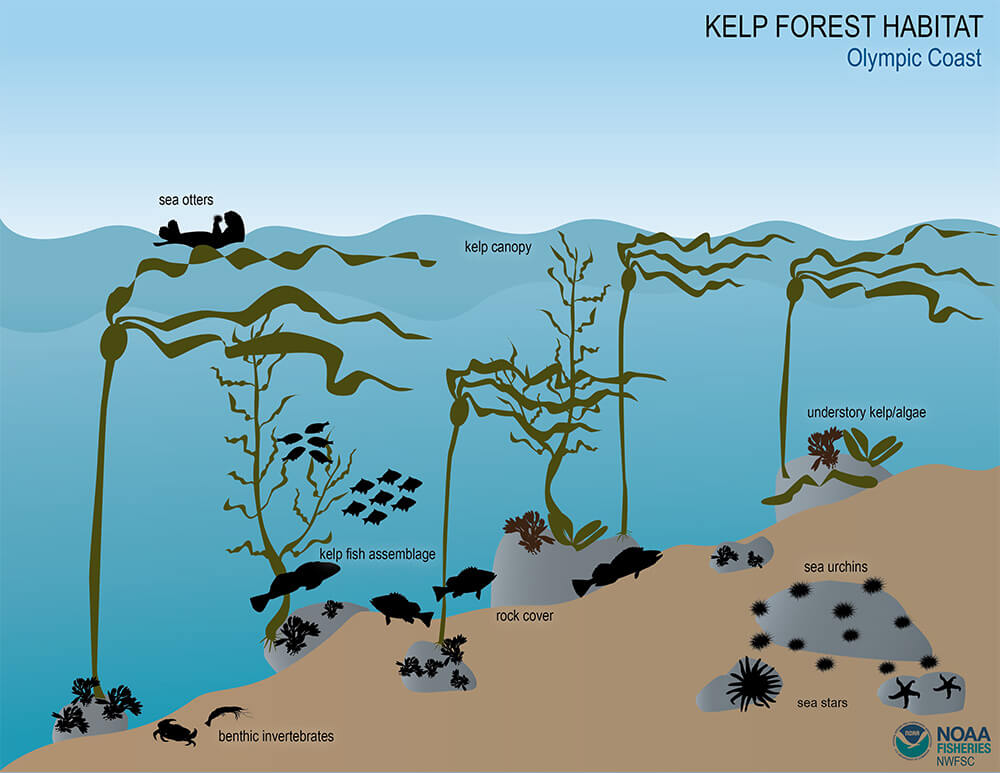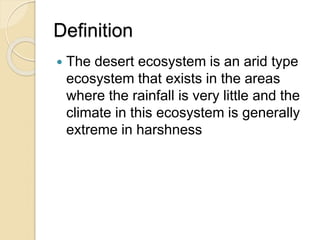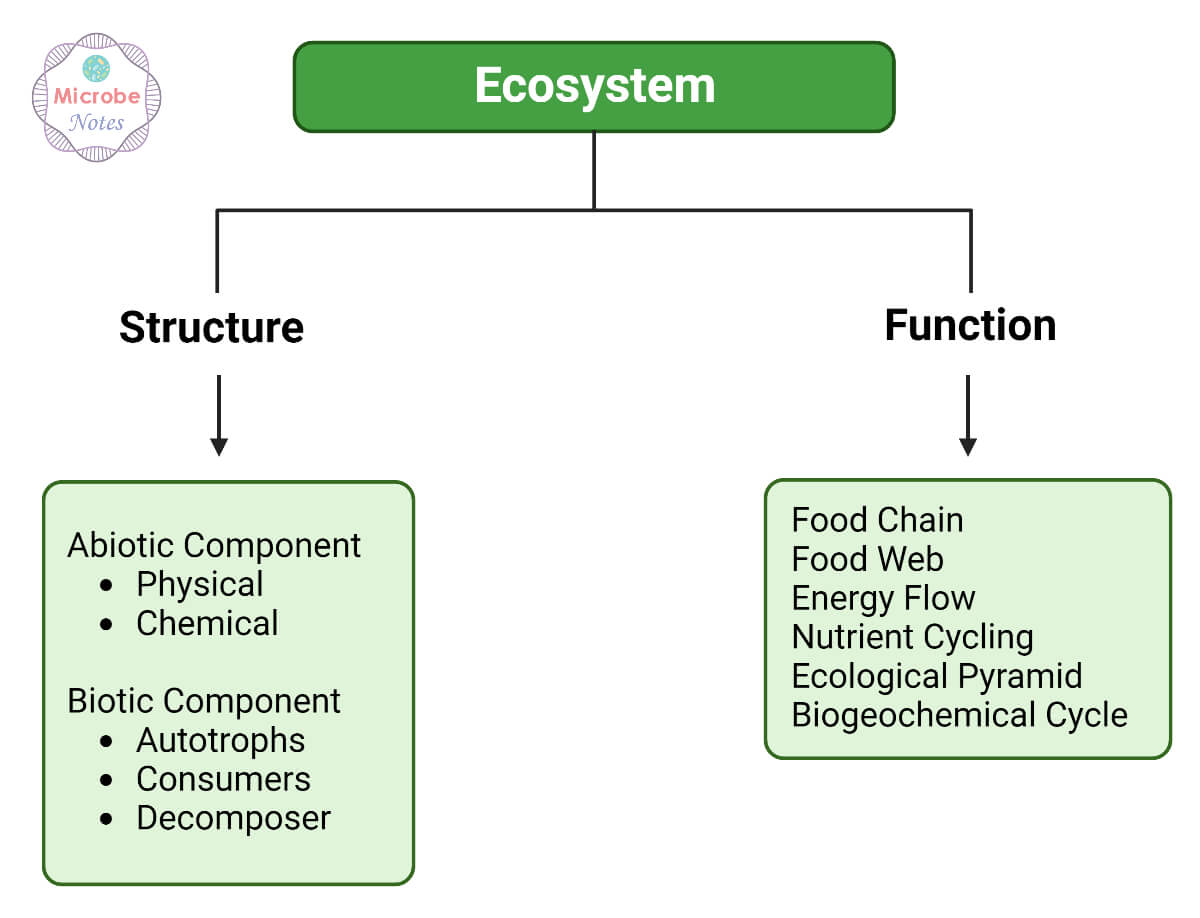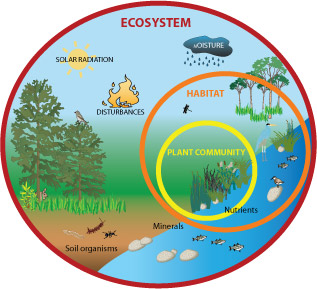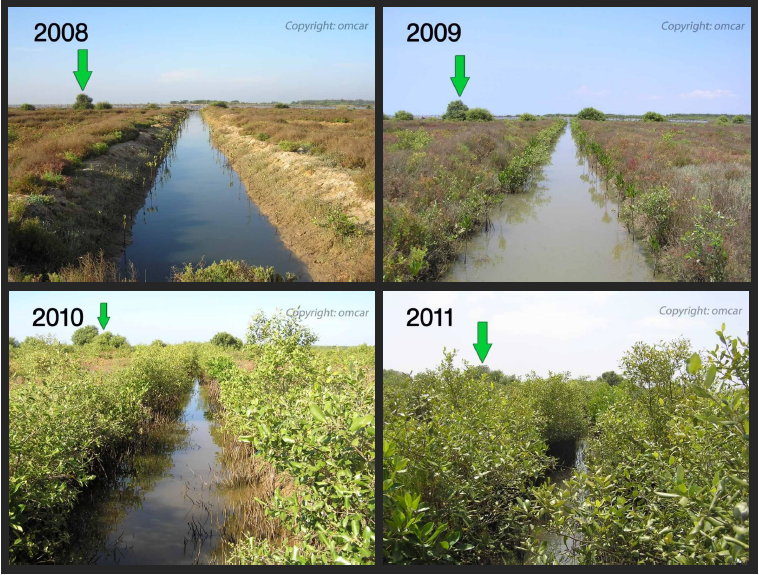Topic ecosystem services meaning: Discover the profound impact of ecosystem services on our daily lives, revealing how nature"s gifts sustain and enrich humanity"s existence.
Table of Content
- What are provisioning services in the context of ecosystem services?
- Definition and Importance of Ecosystem Services
- Types of Ecosystem Services
- Provisioning Services Explained
- Regulating Services: Nature"s Balancing Act
- Cultural Services: Spiritual, Recreational, and Aesthetic Benefits
- Supporting Services: The Foundations of Ecosystem Health
- YOUTUBE: Understanding Ecosystem Services
- The Role of Ecosystem Services in Human Well-being
- Challenges and Threats to Ecosystem Services
- Conservation and Sustainable Management of Ecosystem Services
- Future Directions and Research in Ecosystem Services
What are provisioning services in the context of ecosystem services?
Provisioning services are a type of ecosystem service that refers to the benefits that humans can directly extract from nature. These services are essential for human well-being and survival. Here are some examples of provisioning services:
- Food: This includes crops, fisheries, and livestock that provide sustenance for humans.
- Water: Natural ecosystems help regulate water flow, improve water quality, and provide clean drinking water.
- Medicinal resources: Many pharmaceuticals and traditional medicines are derived from plants and animals in ecosystems.
- Raw materials: Ecosystems provide resources such as wood, fibers, and minerals for various human activities.
- Genetic resources: Biodiversity in ecosystems is a source of genetic material for breeding crops, livestock, and other organisms.
Provisioning services play a vital role in supporting human life and economic activities. They highlight the importance of preserving and sustainably managing ecosystems to ensure the continued availability of these essential benefits.
READ MORE:
Definition and Importance of Ecosystem Services
Ecosystem services are the many and varied benefits that humans freely gain from the natural environment and from properly-functioning ecosystems. Such services include clean water, air, fertile soil, and pollination of plants, among others. These natural services are essential for survival and well-being, offering both tangible and intangible benefits to humanity.
- Supporting Services: These are the services that allow for the existence of all other ecosystem services, such as nutrient cycling, soil formation, and primary production.
- Provisioning Services: These include the products obtained from ecosystems, like food, fresh water, wood, fiber, genetic resources, and medicines.
- Regulating Services: These services include regulation of climate, floods, disease, wastes, and water quality among others.
- Cultural Services: Non-material benefits obtained from ecosystems through spiritual enrichment, cognitive development, reflection, recreation, and aesthetic experiences.
The importance of ecosystem services lies in their critical role in sustaining and fulfilling human life. They contribute to our health, well-being, and economic prosperity while helping to mitigate environmental hazards and manage natural resources. Understanding and preserving ecosystem services is crucial for ensuring a sustainable future for all life on Earth.
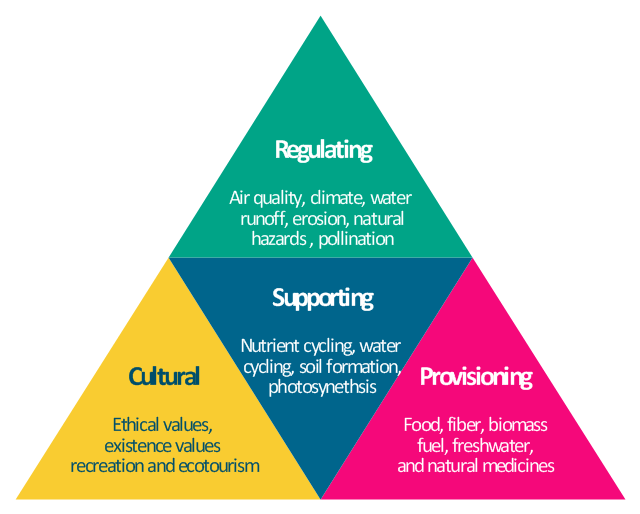
Types of Ecosystem Services
Ecosystem services are broadly categorized into four main types, each playing a unique role in supporting life on Earth and human well-being. Understanding these types helps in appreciating the full range of nature"s contributions to humanity.
- Provisioning Services: These are the products directly obtained from ecosystems, such as food, fresh water, timber, fiber, and medicinal resources. They are the most tangible benefits that nature provides, supporting basic human needs and economic activities.
- Regulating Services: Ecosystems regulate critical natural processes and environmental conditions, offering services like climate regulation, flood control, disease regulation, and water purification. These services help mitigate environmental risks and are vital for stability and safety.
- Cultural Services: These include non-material benefits that people obtain from ecosystems through spiritual enrichment, cultural identity, recreation, and aesthetic experiences. Cultural services highlight the importance of nature in human culture, mental health, and leisure activities.
- Supporting Services: Essential for the production of all other ecosystem services, supporting services include soil formation, photosynthesis, nutrient cycling, and water cycling. These fundamental processes underpin the world’s ecological balance and ensure the sustainability of life on Earth.
Each type of ecosystem service is interconnected, contributing to a resilient and productive environment. Recognizing and valuing these diverse services is crucial for sustainable environmental management and the well-being of future generations.
Provisioning Services Explained
Provisioning services are the tangible goods that ecosystems provide to humans, which are fundamental for survival and economic activities. These services encompass a wide variety of resources that are directly utilized for consumption, manufacturing, and cultural purposes.
- Food: This includes fruits, vegetables, grains, fish, and meat coming from both terrestrial and aquatic ecosystems. Food provisioning is vital for nutrition and sustenance of the human population.
- Water: Freshwater services that are crucial for drinking, sanitation, agriculture, and industry. Clean and accessible water is a fundamental human need and right.
- Raw Materials: Resources such as wood, fiber, and biofuels are supplied by forests, wetlands, and marine ecosystems. These materials are essential for construction, clothing, and energy.
- Medicinal Resources: Many plants and animals provide compounds used in traditional and modern medicines. Biodiversity is a key source for pharmaceuticals and healthcare products.
- Genetic Resources: The genetic diversity found in plants, animals, and microorganisms offers material for breeding, biotechnology, and conservation efforts, contributing to food security and disease resilience.
Provisioning services are directly linked to human welfare and economic development but require sustainable management to ensure that these resources remain available for future generations. The balance between utilizing and conserving these services is crucial for maintaining ecosystem health and human prosperity.

Regulating Services: Nature"s Balancing Act
Regulating services are critical ecosystem functions that maintain the balance and quality of the Earth"s environmental systems. These natural processes regulate climate, diseases, water, and air quality, playing a key role in sustaining life and the planet"s health.
- Climate Regulation: Forests, oceans, and wetlands act as carbon sinks, absorbing and storing carbon dioxide, which helps to regulate global temperatures and mitigate climate change.
- Flood Regulation: Wetlands, rivers, and lakes naturally manage flood risks by absorbing excess water during heavy rainfalls, protecting communities and agricultural lands.
- Disease Regulation: Healthy ecosystems control the spread of pests and diseases. Biodiversity in ecosystems can decrease the occurrence of infectious diseases.
- Water Purification: Natural landscapes filter pollutants from water, maintaining clean water supplies for drinking, agriculture, and recreation.
- Air Quality Maintenance: Vegetation and forests filter air pollutants, providing cleaner air and reducing the health impacts of air pollution.
- Pollination: Bees, birds, bats, and other animals pollinate plants, which is essential for the production of fruits, vegetables, and seeds, supporting agriculture and biodiversity.
Regulating services underscore the intrinsic value of ecosystems in maintaining environmental stability and quality. Their preservation is crucial for ensuring the well-being of humanity and the planet, highlighting the need for sustainable environmental management practices.
Cultural Services: Spiritual, Recreational, and Aesthetic Benefits
Cultural services provided by ecosystems encompass the non-material benefits that enrich the human spirit, foster a sense of well-being, and contribute to the enjoyment of life. These services include spiritual and religious values, recreational opportunities, aesthetic appreciation, and educational experiences.
- Spiritual and Religious Values: Many cultures find spiritual significance and solace in natural settings, which play a crucial role in various religious practices and rituals.
- Recreational Opportunities: Natural landscapes offer settings for outdoor activities such as hiking, bird watching, fishing, and camping that contribute to physical health and mental well-being.
- Aesthetic Appreciation: The beauty of nature, in its myriad forms, inspires art, folklore, national symbols, and personal satisfaction, deeply influencing human creativity and emotional state.
- Educational Experiences: Ecosystems serve as living classrooms, offering invaluable opportunities for learning and scientific research, enhancing knowledge, and fostering a connection with nature.
- Cultural Identity: Natural environments are integral to the cultural identity of communities, shaping traditions, customs, and a sense of belonging.
The preservation of cultural services is essential for maintaining the diversity and richness of human culture, promoting mental health and well-being, and encouraging sustainable tourism and educational opportunities. Recognizing and valuing these services is vital for holistic environmental conservation efforts.
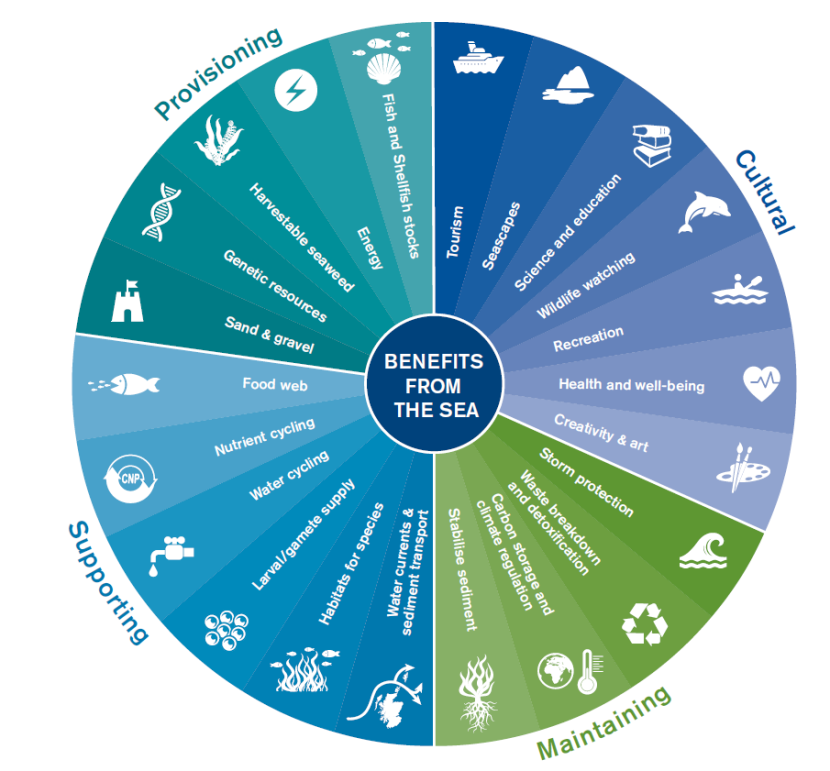
Supporting Services: The Foundations of Ecosystem Health
Supporting services are fundamental ecological processes that underpin all other ecosystem services, making life on Earth possible. They maintain the resilience and productivity of natural ecosystems, ensuring their ability to deliver provisioning, regulating, and cultural services.
- Soil Formation: The process by which organic and inorganic materials are broken down to create fertile soil, which is essential for plant growth and agriculture.
- Nutrient Cycling: The movement and exchange of organic and inorganic matter back into the production of living matter. This includes the carbon, nitrogen, and phosphorus cycles, vital for ecosystem productivity.
- Photosynthesis: The conversion of light energy into chemical energy by plants, producing oxygen and organic compounds, which are foundational for most life forms.
- Water Cycling: The continuous movement of water on, above, and below the surface of the Earth, which plays a key role in climate regulation and the availability of fresh water.
- Primary Production: The creation of organic compounds from atmospheric or aquatic carbon dioxide, principally through the process of photosynthesis, feeding the base of the ecosystem"s food web.
Supporting services are critical for the sustainability of ecosystems and their ability to continue providing benefits to humans. Protecting these foundational services through conservation efforts and sustainable management is crucial for the health of our planet and the well-being of future generations.
Understanding Ecosystem Services
Conservation: \"Explore the inspiring world of conservation in this captivating video showcasing extraordinary efforts to protect and preserve our precious natural landscapes and wildlife. Witness the incredible impact of conservation in action.\" Biodiversity: \"Dive into the fascinating realm of biodiversity with this must-watch video. Discover the incredible variety of life forms that inhabit our planet and learn about the essential role each species plays in maintaining our ecosystem.\"
Exploring Ecosystem Services
How is biodiversity essential to humans? We couldn\'t survive without it! Biodiversity supplies food, shelter, medicine and so much ...
The Role of Ecosystem Services in Human Well-being
The intricate relationship between ecosystem services and human well-being is undeniable. These natural services not only support life"s physical aspects but also enhance the quality of life in numerous intangible ways. Understanding this role highlights the critical need for sustainable interactions with our environment.
- Health: Clean air, water, and access to healthy foods are foundational for physical health. Natural environments also support mental health by providing spaces for relaxation, recreation, and spiritual activities.
- Economic Benefits: Many industries, such as agriculture, forestry, and tourism, directly depend on ecosystem services. Sustainable management of these resources is essential for economic stability and growth.
- Social Impact: Ecosystems play a significant role in cultural identity, community cohesion, and educational opportunities. They are venues for social interaction and recreation, which are crucial for a fulfilling life.
- Climate Stability: Ecosystems regulate the climate and mitigate the impacts of extreme weather events, reducing vulnerability to natural disasters and ensuring a stable living environment.
- Biodiversity: Biodiversity is both a result of and a contributor to ecosystem services, underpinning ecosystem resilience and the ability to continue providing services in the face of environmental change.
The sustainable use and conservation of ecosystem services are imperative for maintaining human well-being. Recognizing the value of these services and integrating them into policy and planning is essential for the long-term health and prosperity of humanity and the planet.

Challenges and Threats to Ecosystem Services
The sustainability of ecosystem services faces numerous challenges and threats from human activities and environmental changes. Recognizing these threats is the first step towards mitigating their impact and preserving the benefits ecosystems provide.
- Habitat Destruction: Land use change for agriculture, urban development, and deforestation disrupts ecosystems, leading to the loss of biodiversity and ecosystem services.
- Pollution: Air, water, and soil pollution from industrial activities, agriculture, and urban runoff degrade ecosystem quality and functionality.
- Climate Change: Alterations in climate patterns affect ecosystem resilience, altering the availability and quality of ecosystem services such as water supply and food production.
- Overexploitation: Unsustainable fishing, hunting, and harvesting of natural resources exceed the regenerative capacity of ecosystems, leading to depletion of species and services.
- Invasive Species: Non-native species can outcompete native species, disrupting ecosystems and reducing the availability of services.
- Globalization: Economic and social globalization pressures can exacerbate the exploitation of ecosystem services, often prioritizing short-term gains over long-term sustainability.
Addressing these challenges requires integrated approaches that include conservation efforts, sustainable management practices, and policies that balance human needs with the health of the planet. The resilience of ecosystems and their ability to provide services are crucial for future generations.
Conservation and Sustainable Management of Ecosystem Services
Conservation and sustainable management of ecosystem services are critical for ensuring that future generations can enjoy the benefits that nature provides. Effective strategies involve a combination of scientific knowledge, policy-making, and community engagement.
- Protected Areas: Establishing and managing protected areas to conserve biodiversity and ecosystem services, while allowing for the sustainable use of natural resources.
- Ecosystem Restoration: Restoring degraded ecosystems to revive their functionality and capacity to provide essential services, such as reforestation and wetland restoration.
- Sustainable Practices: Implementing sustainable agricultural, forestry, and fishing practices that maximize ecosystem benefits while minimizing environmental impacts.
- Policy and Legislation: Developing and enforcing policies and legislation that promote the protection and sustainable use of ecosystems, including incentives for conservation and penalties for degradation.
- Climate Change Mitigation: Reducing greenhouse gas emissions and enhancing carbon sinks through sustainable land use and energy practices to combat climate change and protect ecosystem services.
- Community Involvement: Engaging local communities in conservation efforts, recognizing their knowledge and dependence on ecosystem services, and ensuring their participation in decision-making processes.
- Education and Awareness: Raising awareness about the importance of ecosystem services and the need for conservation and sustainable management through education and outreach programs.
Through these combined efforts, it is possible to preserve ecosystem services for the health and well-being of the planet and its inhabitants. The sustainable management of these services is an ongoing challenge that requires global cooperation and commitment.
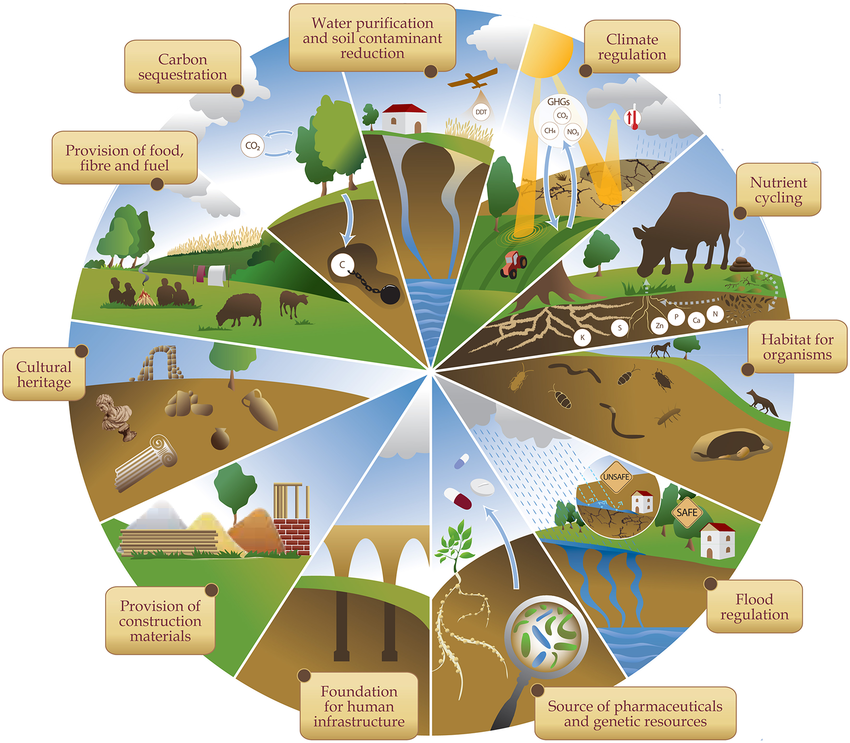
READ MORE:
Future Directions and Research in Ecosystem Services
The future of ecosystem services research is pivotal for enhancing our understanding and management of these vital natural benefits. As we move forward, several key areas are emerging as crucial for the development of strategies that ensure the sustainability of ecosystem services.
- Integrated Assessment Models: Developing models that can accurately predict the impact of human activities on ecosystem services, allowing for better planning and decision-making.
- Valuation of Ecosystem Services: Advancing methods for the economic valuation of ecosystem services to reflect their true value to society and incorporate these values into economic systems.
- Climate Change Impacts: Researching the effects of climate change on ecosystem services to guide adaptation and mitigation strategies, ensuring resilience and sustainability.
- Technological Solutions: Exploring the role of technology in monitoring, restoring, and enhancing ecosystem services, including remote sensing and bioengineering.
- Policy and Governance: Investigating effective policy measures and governance structures that promote the conservation and sustainable use of ecosystem services.
- Stakeholder Engagement: Enhancing methods for engaging stakeholders across sectors and communities in the management of ecosystem services to ensure inclusive and equitable decision-making.
- Biodiversity and Ecosystem Function: Deepening understanding of the relationship between biodiversity and ecosystem function to guide conservation priorities and strategies.
Addressing these future directions through interdisciplinary research and collaborative efforts is essential for the protection and sustainable management of ecosystem services. This will require global cooperation and innovation to meet the challenges of the 21st century and beyond.
Embracing the essence of ecosystem services unveils the path to sustainability, enriching our lives and preserving the planet for future generations. Let"s commit to understanding and protecting these invaluable natural gifts.

